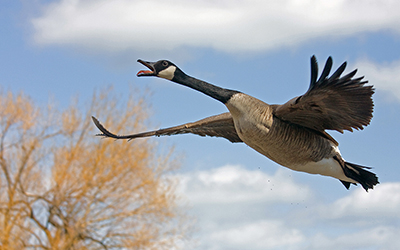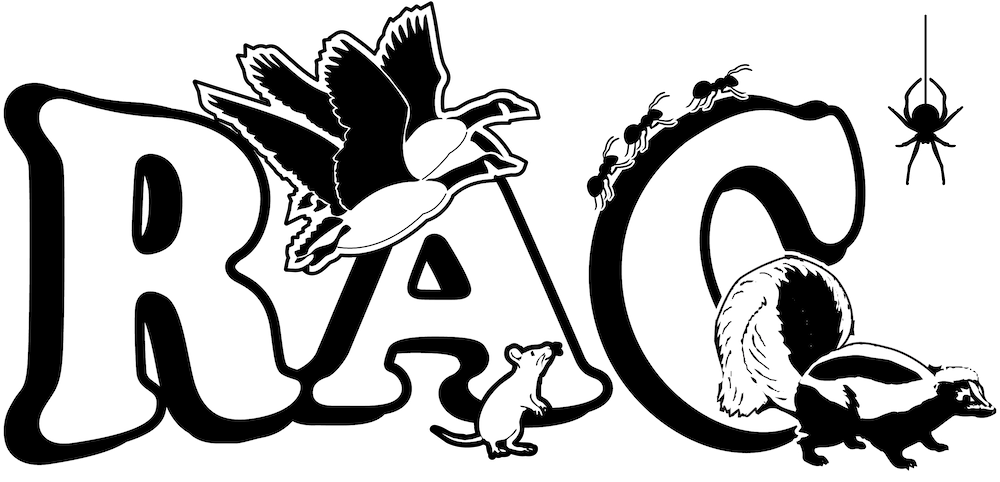
Canada geese are migratory birds protected under the Migratory Bird Treaty Act of 1918. While they are known for their distinctive V-shaped flying pattern and loud honking, their presence can lead to significant problems.
Goose Behavior
![]()
Diet and Droppings
Diet and Droppings
Canada geese consume approximately 2-4 pounds of grass and other vegetation daily, producing about 1.5 pounds of feces each day.

Nesting Season
Nesting Season
Geese become highly territorial and aggressive during their nesting season, typically from March to May.
![]()
Molting Season
Molting Season
From June to early July, geese shed their flight feathers and are unable to fly for about six weeks, leading to increased local activity.
Why Worry About Geese?
Health Risks

Fecal Contamination
The droppings of Canada geese can carry harmful pathogens, posing a health risk to humans and pets. Contaminated water and lawns can become breeding grounds for bacteria and parasites.
Property Damage

Agricultural Impact
Geese feeding on crops can cause significant damage to agricultural fields, leading to reduced yields and financial loss for farmers.

Landscape Damage
Their grazing habits can destroy lawns, golf courses, and public parks, leading to costly repairs and maintenance.
Safety Risks

Aggressive Behavior
During the nesting season, geese can become aggressive and territorial, posing a safety risk to people and pets who inadvertently come too close to their nests.
Preventing Goose Problems
While professional help is often needed to effectively manage goose populations, there are several steps you can take to mitigate problems:
Do Not Hand Feed
Feeding geese encourages them to return and increases their numbers, leading to more problems. Avoid feeding them to discourage their presence.
Maintain a Buffer Around Ponds
Geese prefer easy access to water. Creating a buffer zone of tall grass or other vegetation around ponds can make the area less attractive to them.
Plant Wildflowers Along Shorelines
Planting wildflowers or other dense vegetation along shorelines can deter geese from nesting and grazing in these areas.
Common Goose Misconceptions
Geese Mate for Life
Contrary to popular belief, geese do not always mate for life. While they often form long-term pair bonds, they can find new mates if one dies.
You Can’t Take Action Against Geese
Although Canada geese are protected, there are legal and humane methods to manage their populations. Consult with wildlife control professionals to explore your options.
Coyote Statues Are Effective Deterrents
Simply placing a coyote statue or similar decoy is not a reliable method to scare away geese. These birds quickly adapt to static deterrents.
Take Control of Your Goose Problem Today
Don’t let Canada geese wreak havoc on your property. Rusty’s Animal Control offers professional and humane solutions to manage and prevent goose infestations. Our experts are ready to help you reclaim your space and protect your health and property.
Contact us now for a consultation and let Rusty’s Animal Control handle your goose problem efficiently and effectively.


